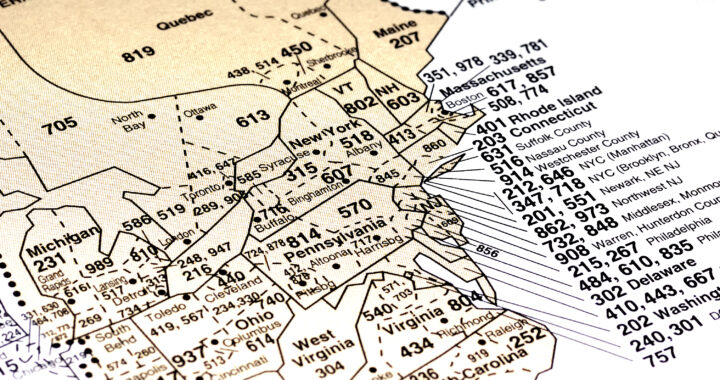VOIP telephone service and cell phones have edged out landlines in how businesses and everyday people make phone calls. Landlines were a quintessential part of communication and home life for decades. It was the 80s when cell phones came along and the 90s when they became more common. But it wasn’t until the early naughts that they became a viable alternative to landlines.
Of course, cell phones didn’t make much sense for businesses, especially larger ones. So landlines stuck around for a while even as phone companies began to bristle at their requirement (present since 1934) to install new ones for homes. The money equation wasn’t working for them anymore, and as they combined with cell companies to form communication conglomerates, internal resistance to POTS (plain old telephone service) lines mounted.
But it wasn’t until VOIP came along that businesses began to have a viable alternative to POTS lines. With businesses no longer worried, the death of the landline was assured. Now, telephone companies are no longer required to offer them.
So today, we say eulogize the landlines, look back on its time with us, and ask, does anyone miss it?
Table of Contents
Some Telephone History – Watson Come Here!
On March 10, 1876, Alexander Graham Bell made the first telephone call, and in many ways, the world was never the same. Initially, The desire to use this new technology grew, and many companies built physical telephone lines to connect one location to another.
Of course, direct lines were not feasible for everyone to reach everyone else. So operators came along to connect one line to another physically. But even that didn’t work long-term because telephone companies acted as a business, so they would not want to connect lines just anywhere.
The Communications Act of 1934 recognized telephone service as a common good, created the FCC and was the impetus for infrastructure for central offices. In the early days, telephone companies had control of specific geographic areas of the country.
Getting a contract to cover an area meant it was yours with no competition – a sweet deal, to be sure. If your company controlled an area and set the prices, you were all but guaranteed to make money. There was only one catch: you had to provide landlines to every residence.
They Want the Business Lines
Telephone companies could make a lot of money offering business lines, especially in urban areas where places were close together. Of course, installing residential lines wasn’t always desirable for the telecoms, but they were part of the package. And for many years, telcos were also the only ones allowed to lease telephone equipment to businesses. That didn’t change until 1974 due to an Antitrust lawsuit. When AT&T lost, it paved the way for companies like RCI to make a living in telecommunications.
There’s a lot to that story too, but too much to cover in a blog about POTS lines.
Cell Phones, VOIP, Etc.
The landline requirement remained in place for nearly a century despite protests. It wasn’t until 2005 that the FCC began investigating whether the universal service requirement was still necessary. Changes to the lawn in 2011 and 2016 resulted in the current release of most telephone service providers from the universal service agreement.
The changes to the law directly resulted from the wider availability of VOIP telephone services and cell phones. However, even today, some parts of the country still fight for their POTs service.
What Did They Have That VOIP Telephone Service Doesn’t Have?
While many business owners and everyday telephone users today have never experienced a world without VOIP or cell phones, there are still many who remember and even miss landlines.
Landlines were stable. The quality of them was clear. Today we’re used to clipping audio and occasionally losing a call entirely. In the 1970s, when RCI owner John Whitcomb first entered the telephone business, a lost call or bad audio would result in an angry phone call from the aggrieved business owner a demand to fix whatever caused it!
Another benefit of landlines was their stability. Unfortunately, nothing that travels over the internet is fully secure. We’ve all heard of hackers!
But back when POTS lines were all we had, “hacking” a phone call would require a physical bug at the phone’s location or on the physical telephone line. Unlike today, bugging was not for amateurs.
Even if you’re one of the people who have a landline today, chances are that your call is not spending its whole life on POTS. VOIP telephone service is so integrated into the infrastructure that either the person you’re speaking with or another point along the line is traveling the internet.
Are Landlines Really Gone?
With the release of the universal service requirement, are landlines really gone? Not yet. It’s not as if the telcos flipped a switch. But you’re unlikely to get a new landline run to your property without paying a premium.
Many businesses enjoyed the security and dependability of landlines, but trying for them now is spitting in the wind. VOIP telephone service is undoubtedly more stable than it used to be, but there’s no comparison for those who remember the old way.
On the other hand, VOIP has advantages that landlines don’t. The service is often less expensive, and it’s easier to add features to it that were cost-prohibitive before. For example, call recording is as easy as a bit of programming today!
It’s not all bad.
So pour one out for the landline. The landline is dead; long live the VOIP. We’ll miss ye.


